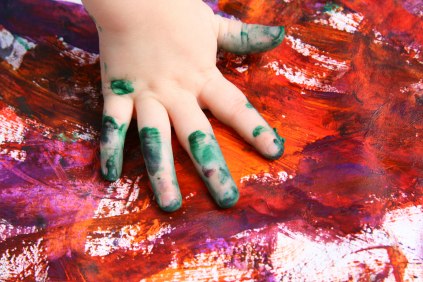I am not a writer. And I am not going to do any writing. But there is an issue that is most private and yet touches so many people that I cannot stay silent any more.
We love putting difficult issues in the closet. Bad idea.
I will deal with one such closet issue – sexual abuse of children.
The basics
Let me start off by laying down a few facts. If they are disconcerting, I am sorry, but they are not wrong.
- Children are not sexually passive. Freud was wrong. There is no latent stage. I was a school counsellor once, and also know that my children are very interested in their bodies. It has nothing to do with television or films.
- If you remember your own conversations from Class I, you’ll be surprised how often you discussed your own body in surrogate ways. Mothers of girls will remember their girls trying to pee like boys, or staring at their chests, wondering. They may not be looking for sex, but they know that certain parts of the body are different and special. Instances of children fondling each other have occurred, but since I haven’t worked enough with them I will go no further than to say it happens.
- Children know when they are being abused. Some of the cases I read about dealt with children who had been abused as infants. They had no conscious memory of the abuse, and yet had problems. Only upon deep probing could the cause be established as child abuse. Others, who were fondled thinking the child would not understand or know, did remember and were troubled.
And now, lets go straight to the subject – identifying child abuse and dealing with it.
What is abuse?
ANYTHING THAT VIOLATES A CHILD’S PRIVACY. Ranges from fondling to rape. If you are doing anything to a child you would not do in the parents’ presence, you are abusing the child. If you ARE the parent, and if you are touching your child more than s/he is comfortable with, you are abusing a child. Would you do it if your spouse were present?
Who is abused?
This one is simple – almost all children, male and female. And not, as one would think, isolated female children. More female than male though. It is absolutely wrong to think this does not happen to our children. It does. Worse still, our children do it sometimes (I have mentioned inter-child relationships above).
Who abuses?
Umpteen times it has been said, and yet we take no heed – abusers are ALMOST ALWAYS people we trust. No one who is not trusted will have the opportunity to abuse on an ongoing basis – right?
How does it hurt?
“So, how does it hurt a child so much if I have touched her/him a bit here and there? Why make such an issue out of it? I know you counsellors make a big thing out of everything to make money.” This is not an isolated parent talking. Most people who are not (known to be) abusers have asked, “Why are children so deeply affected by harmless stroking?”
Well, not all children are. We must remember that children are less protected by the strength of their own personalities. When something as beautiful and intimate as sex is introduced in such an unfriendly manner, they are jolted. What matters is not how bad the experience has been, but how bad the child has taken it.
There have been traumatised children from what would appear “small”(sic!) fondling, and there have been children who were party to such “games” and lived their lives with little more than social guilt. Each child is unique in responding to the same situation.
Why don’t parents know?
Because they do not communicate enough with their children. They trust the abuser so much the child does not expect them to believe it. The children don’t think the parents would care anyway and maybe they are overreacting. These are the chief reasons children gave me.
There are some parents who know but do not act. Personally, I think they hurt the child more than the abuser does. It makes the child feel s/he cannot, will not be protected by anyone.
How to tell if your child is being abused?
These are the most tell-tale signals I have been able to identify:
- The child’s very, very subtle disinterest in cleaning his/her private parts at bath-time and a tendency to avoid touching them.
- Alternately, the child’s increased sexual insolence (refusal to wear underwear, raising the skirt when walking the road etc.)
- The child’s sudden dislike for a close person for no apparent reason.
- When the child especially tries to avoid meeting an adult – this is a danger signal. Even if it’s not abuse, the child generally knows something you don’t, but should.
- Sometimes, children believe they are at fault, and may ask questions about god punishing them etc. Use the opportunity to know what is on the child’s mind.
- When they talk about a special/secret game, make your ears stand up!
What to do?
Let the child talk:
- Make your child feel comfortable – by holding younger children and making older children something they like to eat, or taking them out to their favorite place etc. Make sure you reiterate that you love them a lot and will do ANYTHING for them. Sometimes, your child provides you a clue in the most unexpected way – for god’s sake, seize the chance. Take it there and then.
- Ask questions. Establish whether the child is being abused by only one set of people or a person. It is not uncommon to know that the school chowkidar, the domestic servant and the neighbour are all abusing the child. Disgusting, but true.
- Establish the identity of the abuser(s). If the child is scared to reveal, stay calm and patient. Do not scare the child any more.
Sieve information and assess:
- The nature of abuse – how strong is it?
- How badly has your child taken it?
- How long has it been happening?
- Are other children, too, being abused? Maybe the dhobi is fondling all girls who play in the colony park (the colony park is one of the worst places.)
- If they are, do their parents know?
- What approach does the abuser use? Threat? Persuasion? “Lets play a game”?Now, ask yourself what your alternatives are. The list that follows is not the most politically correct thing to do, but is practical.
- If more than one child is involved (as in a school/colony), get other parents involved. The take collective action. But make sure you introduce the subject carefully. They may turn antipathetic if you do not.
- If it is a close relative you cannot directly confront (e.g. your spouse or a close cousin), drop clear hints about “increasing child abuse by known people” and “if I ever know it is happening to my child, I will not spare the fellow.”
- If it is someone you CAN confront, do so. Your child’s security is more important than your social relationships.
- Tell the child to go tell the abuser in the course of conversation that s/he will tell his/her parents about this. If the abuser is not a criminal, s/he will generally stop. It’s a simple thing, but I have seen it work so often.
- Wherever possible publicly humiliate the abuser. It’s a more efficient punishment than prosecution.
Taking care of the child
As a parent, here are things you will need to know:
- Let the child talk. Do not ever say ” C’mon, get over it now – it’s over.” That’s just what the child is trying to do! Listen, always listen, but don’t pity the child. Listen like you would listen to their school troubles. Support, do not pity.
- If they ask if they are “dirty” now, answer in the negative. It is people who do dirty things who are dirty. There will be other questions. Answer them honestly, directly, and lovingly. And patiently as well.
- If you want the child to treat it as a learning experience, YOU need to treat it as that first. No “Why me? Why my child?” It happens to so many children it’s NOT you or your child.
- If your child displays symptoms like fear in sleep, reduced social contact or avoids people belonging to the abuser’s class (friends, servants, teachers) – seek professional help.










